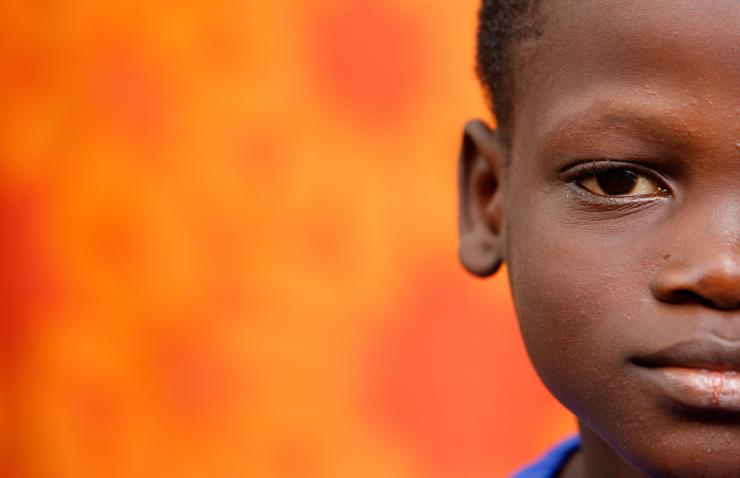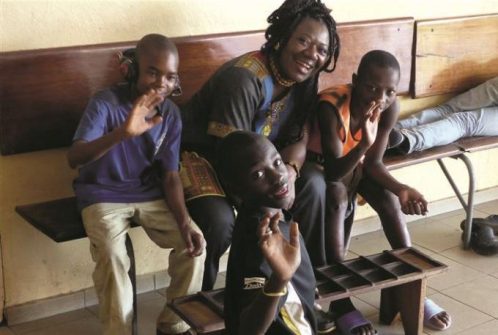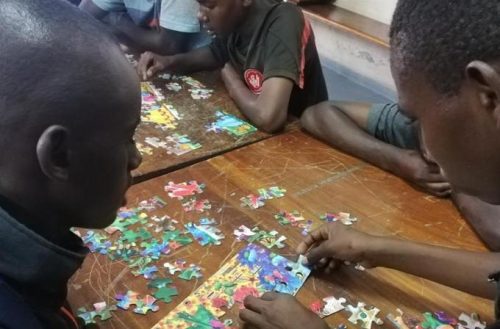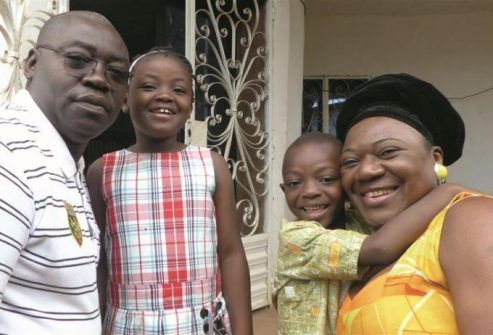Cameroon. Those ten seconds of humanity.

This is the time necessary, according to Mireille Yoga, director of the Edimar Centre in Yaoundé, to restore a look of dignity to a street child. Testimony of personal and social commitment.
“My name is Mireille Yoga, director of the Edimar Centre in Yaoundé and mother of four adopted children and five in foster care.” This is how this Cameroonian woman introduces herself with a broad smile. As for children, she has had many more. They are the ones who have passed through the Edimar Centre. It is located in front of the station of the Cameroonian capital to offer a point of reference to all those children and young people who are forced to live on the streets.

Mireille and some boys at the Edimar Centre. Photo: Avsi
Mireille is the soul of this centre and of all the activities that take place around it because what drives her is a deep faith and a profound sense of closeness which is also translated into very strong personal choices. “My husband and I couldn’t have children – she says. At one point I was truly obsessed with the desire to give my husband a child. Luckily, he is an open and understanding person. One day my husband told me that perhaps the Lord was calling me to spiritual motherhood. I felt that what he was offering me was not just a job. It was something much bigger that responded to my need and my pain.”
It was something that opened the doors to a welcome that became family and community, personal and social commitment, and which has translated into a myriad of meetings and friendships which,
in turn, continue to create new possibilities for building a new humanity from the bottom up.
The Edimar Centre itself today is truly something very big and special, not only because it has helped – and continues to do so – hundreds of street children and young people, but because it has inoculated Cameroonian society with many signs of hope. “The Edimar Centre is a large tree, that continues to grow and bear fruit which gives us incredible strength. Its first seed was planted in the country of Cameroon by an Italian priest, Father Maurizio Bezzi, to help create a new sort of humanity for all those who have been abandoned or who feel abandoned, who have taken refuge in the streets and places where no one dares to go. Edimar is the possibility of discovering the beauty of their hearts and the ability to see that there is hope.”

Street Children at the Edimar Centre. Photo: Avsi
It is not easy, nor is it for everyone. In Cameroon, many don’t even want to see these kids. They call them nanga boko, which means ‘Those who sleep outside’, but the term has taken on a very derogatory meaning. People and authorities consider them as the scum of society and treat them as criminals, thieves and liars.
Father Maurizio, who lived in Cameroon from 1987 to 2018, was inspired by Brother Yves Lascanne, a Little Brother, a pioneer in working with street children; he had first collaborated with the Foyer de l’Espérance, the House of Hope, and then he created the Edimar Centre in 2002 with a specific objective: to contrast violence with friendship, mistrust with confidence.
“In these twenty-two years – Mireille recalls -, we can say that a generation of children have left the streets and after them their children who have never known that way of life, who have never slept, eaten, stolen or been abused on the streets. A new generation is going to school. And this is an incredible and beautiful thing.”
At the same time, Mireille is worried about the increasing number of street girls whose situation is even more dramatic because they suffer a lot of abuse. They often become pregnant and their children are born and grow up on the street. Furthermore, there are more and more “families” on the street, often obviously dysfunctional.
Economic difficulties and the loss of values have aggravated the situation, creating a “Parallel” society.
Mireille and her staff, however, were not discouraged, on the contrary. Without the Centre, the boys and girls would have gone to the streets. “With our educators, we have tried to follow especially the little ones in the places where they meet. Whenever possible, we directed them to return to the village or join some relatives.”

Mireille with her husband Victorien and their children, Andrée and Jéremie. Photo: Avsi
So, they intensified their presence on the streets, trying to reach even the most ‘difficult’ kids, those who use alcohol and drugs: kids who, almost always, also reveal themselves to be the most vulnerable because they are exposed to everything. “With the Edimar operators – continues Mireille – we returned to the streets more frequently. We tried to raise awareness so that they could protect themselves from contagion and many other risks. And then we started a kind of school in the street, teaching reading and writing on the ground, in the sand and the dust.”
From the experience of street schools, we began to create some basic professional courses. “It’s a first step – says Mireille – but it’s very important that children realise the importance of education for their future and that they may one day be included in a real school. For this reason, we have also started the construction of some dormitories, a little outside the centre, so that they can have a simple but quiet place to concentrate on their studies.”
Street school, like many other activities, is not just a learning opportunity, but first and foremost a chance to meet and shake hands with kids, to look them in the eyes for ten seconds. «Ten seconds of dignity! – Mireille underlines forcefully -.
Some of the kids who met that gaze today have returned as volunteers to help those still on the streets. “It’s wonderful to see that those who have encountered an outstretched hand now have the desire to do the same with others. Friendship and education can bring out the desire and ability to give as well as receive. In this way the circle never closes,” concludes Mireille. And so those ten seconds full of humanity allow a beautiful story to continue to be written. (Open Photo: 123rf)
Anna Pozzi/MM



